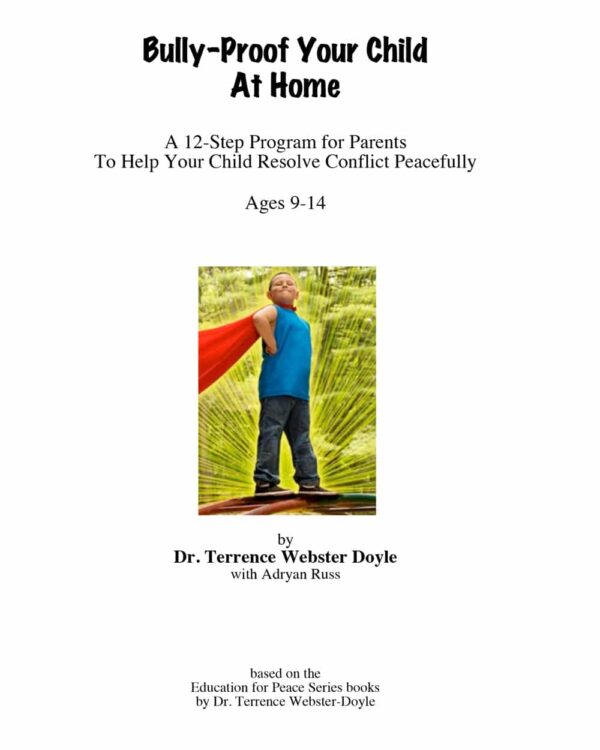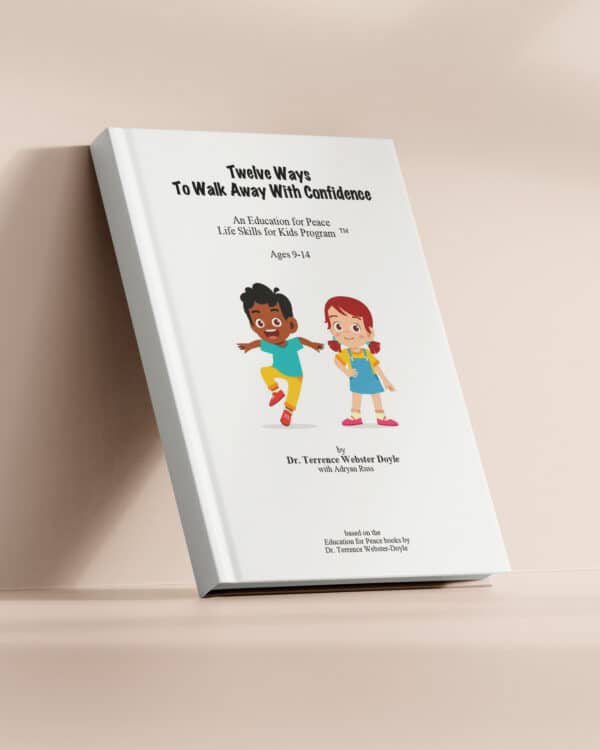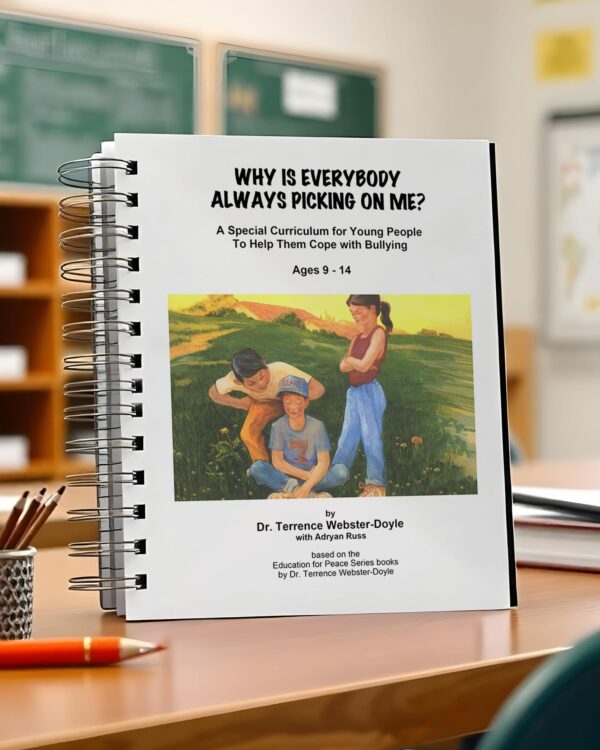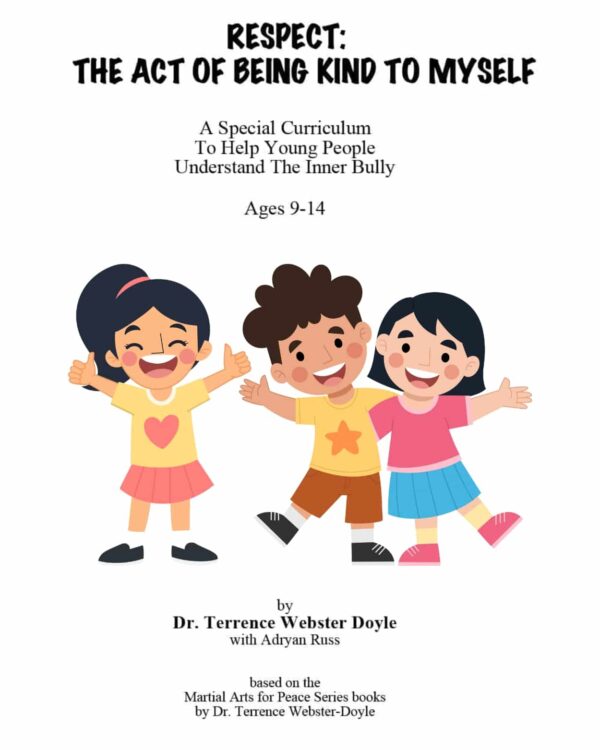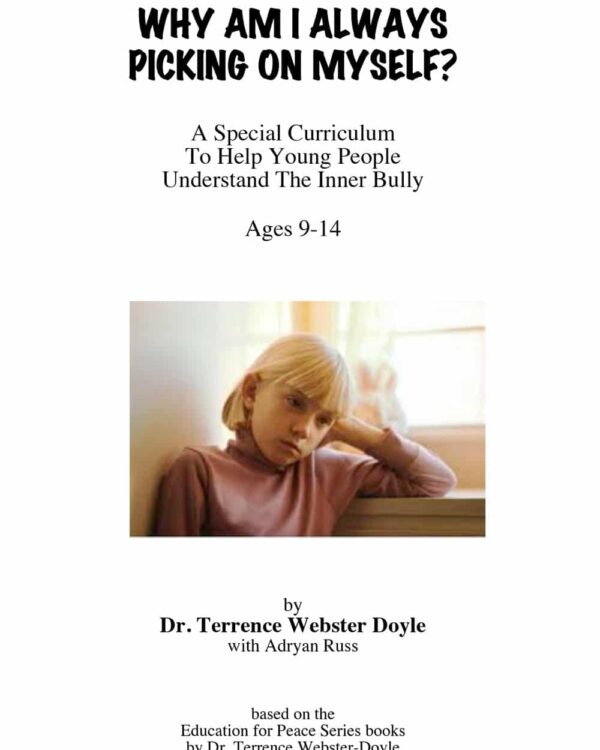How Parents Can Support Their Child to Prevent Bullying

The thought of your child being bullied is heartbreaking for any parent and while it’s natural to want to protect them, the reality is that you can’t control every situation they face. That said, you’re far from powerless when it comes to helping them handle bullying.
The good news is that there’s a lot you can do to help reduce the chances of bullying and support your child if it happens. Teaching them to communicate clearly, build strong friendships, and feel good about themselves are all ways to empower them and build their resilience.
This guide offers practical tips to help you support your child while also preparing them how to handle bullying situations if (and realistically, when) they happen.
Looking for practical advice to help your child deal with bullying? Enroll in our online course and get weekly lessons packed with actionable tips to handle the situation with confidence.
Anti-Bullying Resources
Ways Parents Can Help Prevent Bullying at Home
You can’t completely protect your child from bullying, but there’s plenty you can do at home to help lower the chances, and if it does happen, the things you’ve worked on together will make it easier for them to handle.
Create a Positive Atmosphere at Home
Building a positive family atmosphere is a great way to proactively support your child and lower the risk of bullying. When home feels safe and supportive, your child has more confidence and knows they can rely on you.
Start by Keeping Communication Open
Make it clear that they can talk to you about anything, good or bad, without fear of being judged or dismissed. Take time to check in with them about their day, their friendships, and any challenges they’re facing. We have more tips about this below.
Show Kindness and Respect in your Own Actions
Kids learn a lot by watching how you interact with others, so model empathy and healthy ways to deal with conflicts.
Spend Quality Time Together as a Family
Eat meals together, play games, or go on little adventures. These create strong bonds and show your child they’re loved and valued.
Celebrate Their Efforts and Wins, No Matter How Small
Encouragement and recognition help build their self-esteem which makes them less vulnerable to bullying.
A positive family atmosphere gives your child a solid foundation to navigate life’s ups and downs and helps them feel confident in who they are.
Keep Communication Open
One of the best things you can do as a parent is to keep communication open at home.
When your child feels safe talking to you about their struggles, they’re much more likely to share if they’re dealing with bullying or other challenges.
- Ask Open-Ended Questions: Instead of simple yes-or-no questions like “Did you have a good day at school?”, try asking things like, “What was the best part of your day?” or “Did anything happen today that upset you?” These kinds of questions help your child to share more and give you better insight into their day-to-day life.
- Be an Active Listener: When your child talks to you, give them your full attention. Put down your phone and focus on what they’re saying. Validate their feelings instead of brushing them off. Saying something like “That sounds really tough” can help them feel supported.
- Make Time for Regular Check-Ins: Set aside time to check in regularly about school, friends, and anything else on their mind. Dinner, before bed, or on the drive home from school are great times to talk and make communication a normal part of your relationship.
By creating an open and supportive environment, it’s easier for your child to come to you with their concerns, big and small. This kind of connection makes a huge difference when it comes to helping them navigate bullying.
Our curriculum is designed specifically for parents to use at home. It encourages open dialogue and helps children practice role-playing scenarios where they learn to express their feelings and stand up to bullying in a healthy, confident way.
Set a Positive Example
Kids pick up on how you treat others and handle challenges, so modeling positive behavior at home is an effective way to teach them these life skills.
When you show respect, kindness, and confidence in your interactions, you help your child learn how to navigate their own relationships in a healthy way.
Demonstrate Kindness and Respect in Your Daily Life
Your child is more likely to mirror these behaviors when they see you practicing them consistently.
Stay Calm During Disagreements
Focus on finding solutions without yelling or name-calling. This shows them that conflicts don’t have to be negative and can be resolved constructively.
Stand Up for Others When You See Unfair Treatment
By setting this example, you’re teaching them how to interact with others and empowering them to be compassionate and confident in their own lives.
Address Sibling Bullying
Sibling relationships play a big role in shaping how kids interact with others and handle social situations. While sibling rivalry is normal, sibling bullying is a different story and it goes beyond typical disagreements and can have serious, long-term effects.
Studies show that kids involved in sibling bullying, whether they’re the bully, the victim, or just watching it happen, are more likely to experience bullying outside the home.
To reduce sibling bullying, set clear rules about what’s okay and what’s not, like no hurtful teasing, name-calling, or physical aggression.
Teach your kids how to work through disagreements by talking things out and finding fair solutions. Show them what respect and kindness look like through your own actions. Make time for each child individually to avoid jealousy or competition for your attention.
If one child is consistently crossing the line, step in, explain why it’s not okay, and help them find better ways to handle the situation.
Sibling relationships are a training ground for social skills. By addressing bullying behaviors at home, you can help your children build healthier relationships with each other and in the world.
Teach Assertiveness & How to Set Boundaries
Helping your child develop assertiveness makes a difference in how they handle challenging social situations. Assertiveness means expressing their needs and feelings clearly and respectfully without being aggressive or passive.
This skill helps them set boundaries and makes them less likely to be targeted by bullies.
You can practice this together by role-playing common scenarios where bullying might occur. For example, if someone teases them, they can respond confidently with something like, “I don’t like that. Please stop.”
Body language is just as important. Teach them to stand tall, maintain eye contact, and speak in a calm, steady voice to show confidence and deter negative behavior.
It’s also crucial to teach your child that it’s okay to set boundaries and say no when someone is treating them poorly. Reinforce that they deserve to be treated with kindness and respect and that standing up for themselves shows self-respect.
Our parent-friendly curriculum includes role-playing exercises to help children practice assertive responses in a safe environment. Download it to get started today.
Social Emotional Resources
Build Your Child’s Self-Esteem
Confident children with a strong sense of self-worth are less likely to be targeted by bullies and better equipped to handle negative behavior. Building your child’s self-esteem helps them feel secure in who they are.
Celebrate their wins, big or small. Whether it’s acing a test, improving at a sport, or being kind to someone, recognize their achievements to show them that their efforts matter.
Encourage them to explore hobbies or activities they love. Doing things they enjoy and are good at boosts their confidence and gives them a positive outlet for stress.
Teach them how to speak to themselves with kindness. For example, if they’re struggling with something like math, help them shift their thinking from “I’m bad at this” to “This is tricky, but I’m getting better.” Small changes like this can make a big difference in how they see themselves and handle challenges.
Teach Problem-Solving Skills
Helping your child develop problem-solving skills gives them the confidence to handle tough social situations, including bullying. When children learn to approach challenges with a solution-focused mindset, they feel more in control and capable.
Encourage your child to work through problems independently whenever possible. Whether it’s managing a tricky relationship with a classmate or resolving a disagreement with a friend, give them space to figure things out on their own.
Take time to discuss different scenarios they might face at school and brainstorm ways they could respond. For instance, talk about what they could do if they’re teased or how they might support someone else being bullied. These conversations prepare them to think critically in real-life situations.
When your child comes to you for help, guide them without jumping straight to solutions. Ask questions that encourage them to think through the issue and come up with their own plan. This strengthens their problem-solving skills and helps them feel capable and empowered.
Stay Involved in Your Child’s Online World
Cyberbullying is on the rise and staying involved in your child’s digital life is more important than ever. Because it happens online, it can be harder to notice but there are steps you can take to help protect your child and create a safer online environment.
Set clear rules around technology use, including when and how they can use social media, messaging apps, and gaming platforms. Encourage open conversations about their online interactions and make sure they understand how to protect their privacy and personal information.
Help your child develop good online etiquette just as you would teach them how to behave in person. Talk about the importance of being respectful, avoiding inappropriate content, and knowing how to block or report harmful behavior like bullying.
Encourage Healthy Friendships
A strong support system of friends can prevent bullying because with supportive friendships are less likely to be isolated or targeted by bullies.
Help your child build friendships with peers who share their interests and values. Get to know their friends and create opportunities for them to spend time together through playdates and extracurricular activities. Good friendships start with strong social skills, so teach your child the importance of cooperation and resolving conflicts calmly.
Keep an eye out for toxic friendships. If one of your child’s friends seems manipulative or unkind, talk with your child about what makes a good friend and encourage them to focus on relationships that make them feel supported and appreciated. Positive peer connections help your child feel confident and less vulnerable to bullying.
Looking for practical advice to help your child deal with bullying? Enroll in our online course and get weekly lessons packed with actionable tips to handle the situation with confidence.

How Parents Can Work with the School to Prevent & Address Bullying
Finally, staying in touch with your child’s school is very important. Teachers, counselors, and staff are a big part of your child’s daily life and have a lot of influence on their social environment.
Building a solid partnership with the school can make a real difference when it comes to preventing and addressing bullying.
Build a Relationship with Other Parents
Getting to know other parents at your child’s school is a great way to help prevent and address bullying. When parents are connected, it creates a sense of community and makes it easier to share information or spot potential issues early.
By building relationships with other parents, you can better understand your child’s social circle and dynamics. Sometimes other parents might notice things you haven’t like a child being left out or someone acting a bit too controlling. Having open communication makes it easier to address these concerns together.
These connections also create a support system. When bullying happens, parents who know and trust each other are more likely to work together toward a solution.
Stay Involved in Your Child’s School Life
Being involved in your child’s school life supports them and keeps you ahead of any potential issues, including bullying.
Make time to attend parent-teacher conferences to get updates on how your child is doing academically and socially. These meetings are a great opportunity to ask questions, share concerns, and learn how they’re interacting with their peers.
School events like assemblies or extracurricular activities are a great way to see the school environment firsthand and build connections with staff and other parents. The more involved you are, the easier it is for school staff to approach you if something comes up.
If the school offers bullying prevention meetings or workshops, try to attend. These sessions often provide useful tips and strategies for spotting and addressing bullying. Plus, it shows your child that you’re serious about creating a safe environment.
Collaborate with Teachers and Counselors
If you think your child is being bullied, reach out to their teacher or school counselor. Your child sees these people daily and they may have noticed changes in their behavior or social interactions.
By working together, you can get a clearer idea of what’s happening and come up with a plan to help your child.
Start by setting up a meeting to talk about your concerns. Share what you’ve noticed at home—like mood changes, reluctance to go to school, or specific things your child has said. Ask if they’ve seen anything similar or noticed patterns of behavior that might signal an issue.
Most schools have anti-bullying policies and resources in place. Teachers and counselors can take steps to address the problem such as keeping an eye on interactions or escalating the issue to school leadership if needed. They can also connect your child with resources like counseling or peer support to help them.
Stay in touch as things progress. Regular updates from teachers or counselors help ensure the plan is working and give you peace of mind that your child is being supported.
Support Anti-Bullying Efforts All Year Long
Anti-Bullying Week is great for raising awareness, but real change happens when schools focus on these lessons all year long. Encouraging your child’s school to have ongoing anti-bullying programs can create a safer environment for everyone.
Programs that teach respect, empathy, and conflict resolution are especially effective. They help kids understand and value each other’s feelings which makes them less likely to bully or accept bullying behavior. These programs also build a stronger sense of community and benefit all students.
You can support these efforts by getting involved. Volunteer to help with activities, share our resources, run workshops, or simply show your support at school meetings.
Encourage the school to use interactive activities like role-playing, group discussions, or peer mentorship to make the lessons engaging.
Ask for your child’s school to weave these lessons into everyday routines. Things like classroom discussions, group projects, or even team sports are great opportunities to reinforce bully prevention in a natural way.
By supporting year-round anti-bullying efforts, you’re showing your child and their school that creating a safe environment is important.
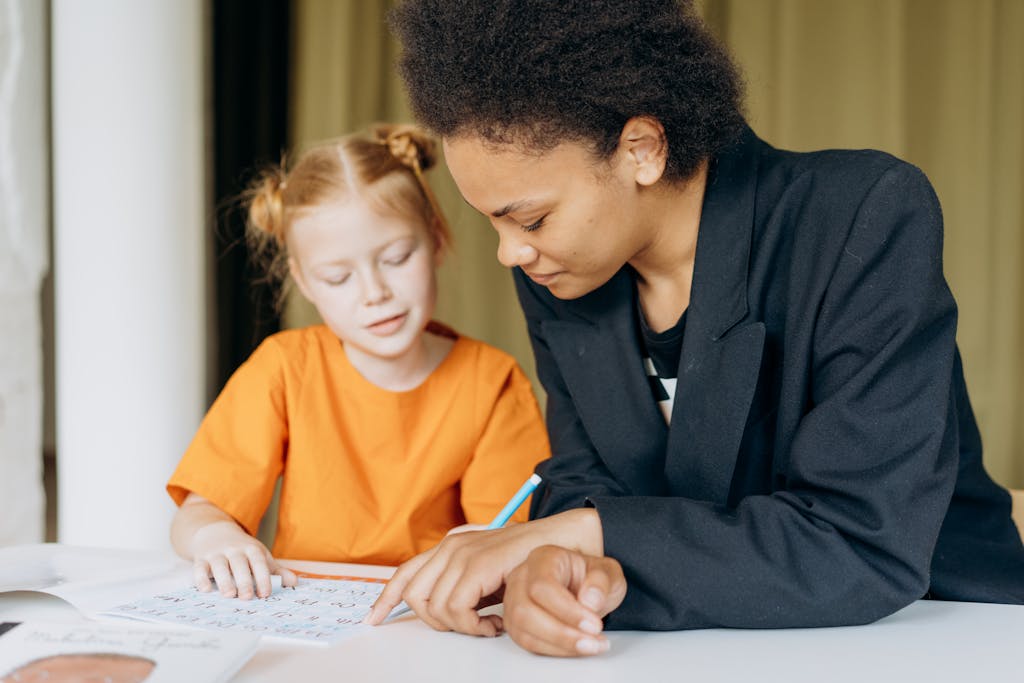
Conclusion
As a parent, you play an important role in preventing bullying and supporting your child through difficult situations.
It starts with open, honest communication. Make sure your child knows they can come to you with anything, big or small, without fear of judgment. When children feel heard and understood, they’re more likely to share their worries which is key to catching problems early.
Modeling positive behaviour is just as important. Your child learns from the way you handle conflict, show empathy, and treat others with kindness. By demonstrating healthy ways to manage emotions and resolve issues, you give them the tools they need to handle tough situations with confidence.
It’s also helpful to build a connection with your child’s school. Stay informed about their environment and get to know their teachers and peers. When children see that their parents are involved and supportive, they feel safer and more secure.
Encouraging your child to build healthy friendships is equally important, as having supportive friends can reduce the risk of bullying and help them feel more connected.
While you can’t control everything your child experiences, you can create a strong foundation that helps them navigate challenges. Your support and guidance can make all the difference in their ability to handle difficult situations and grow into a confident, resilient individual.
